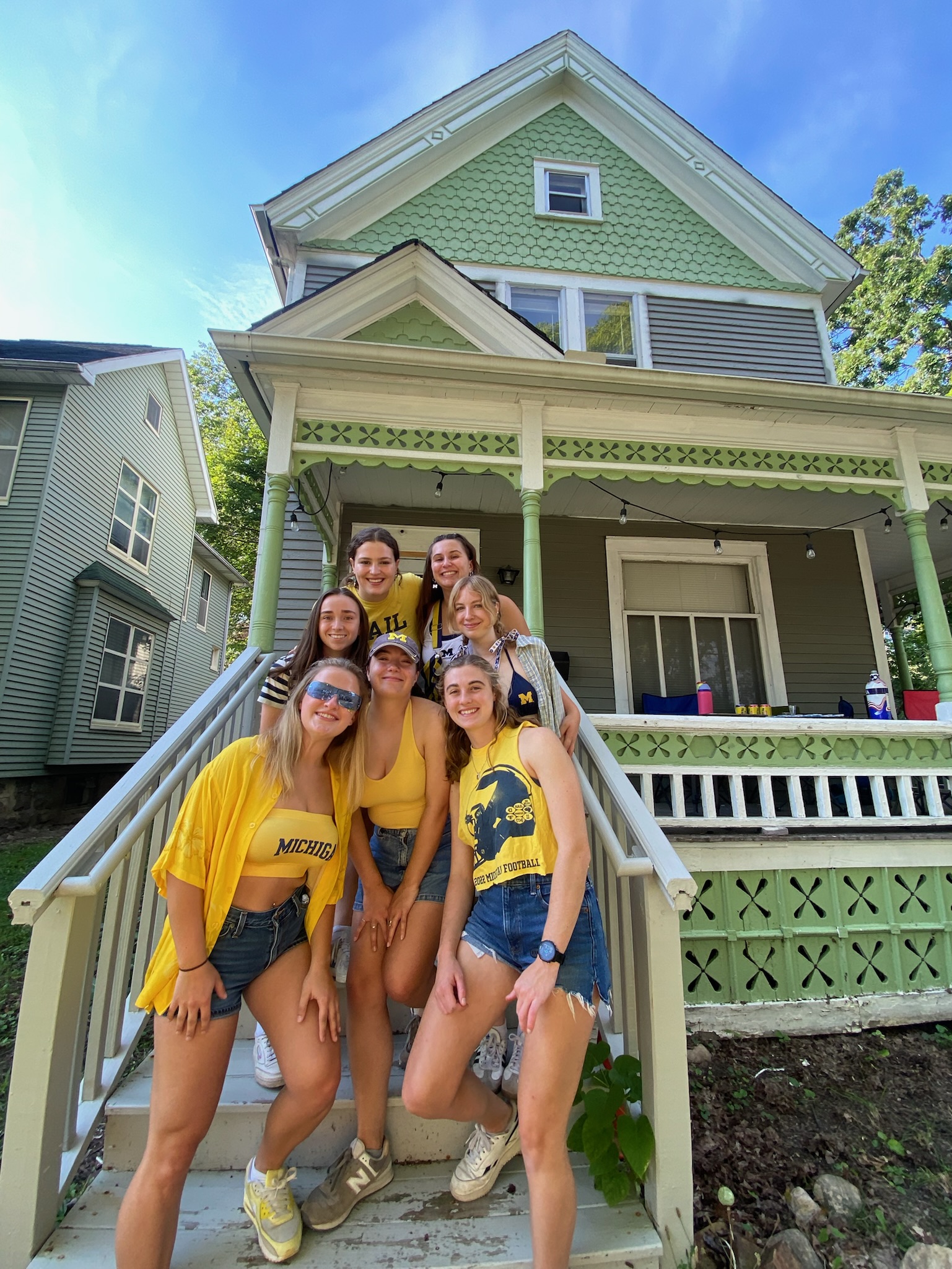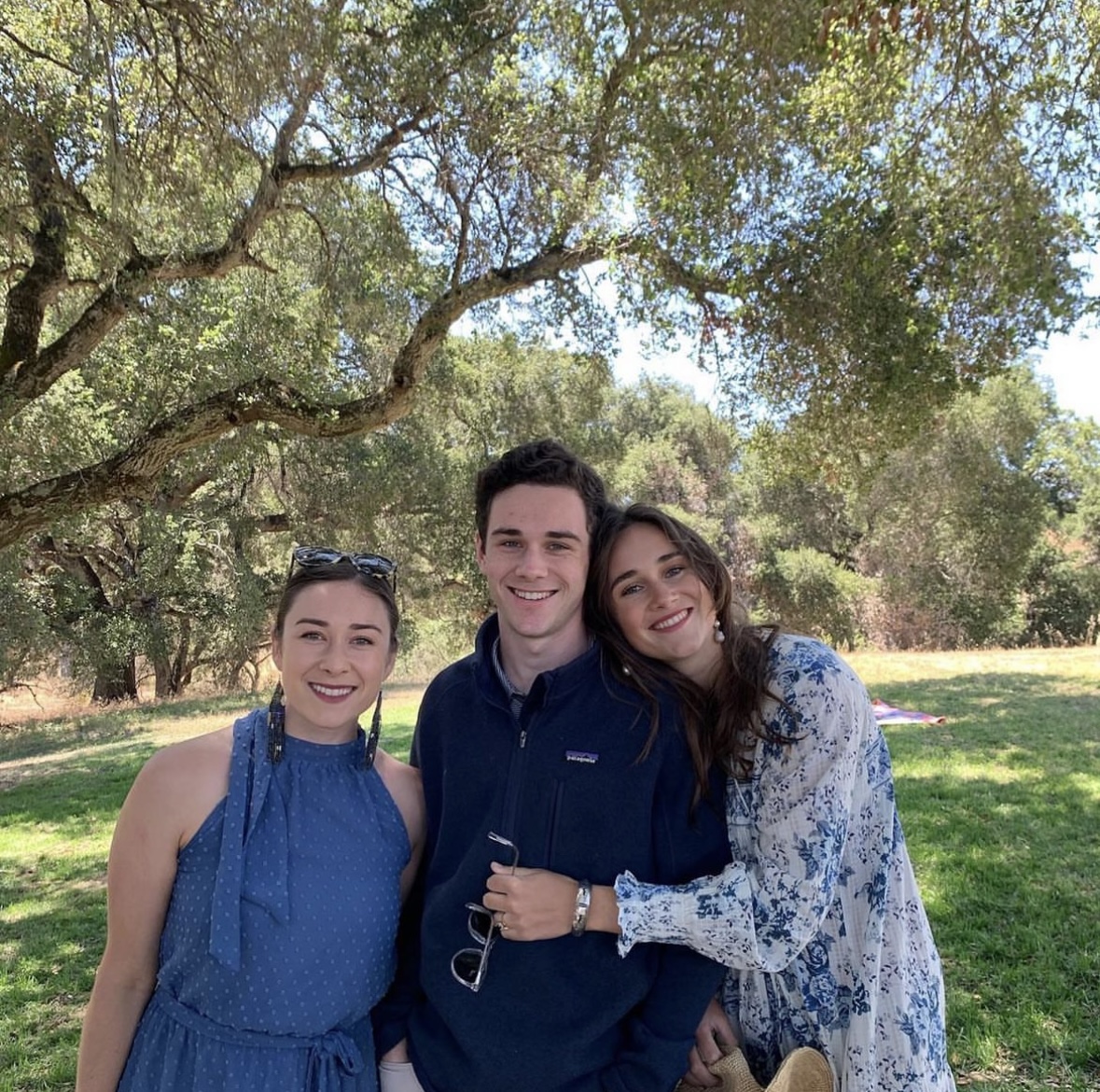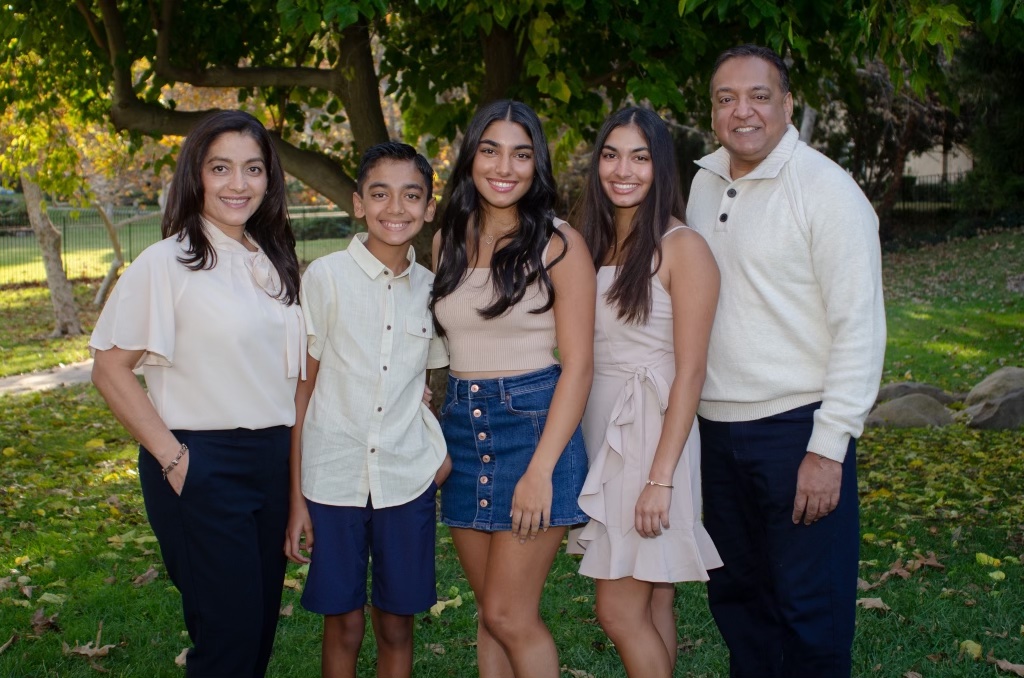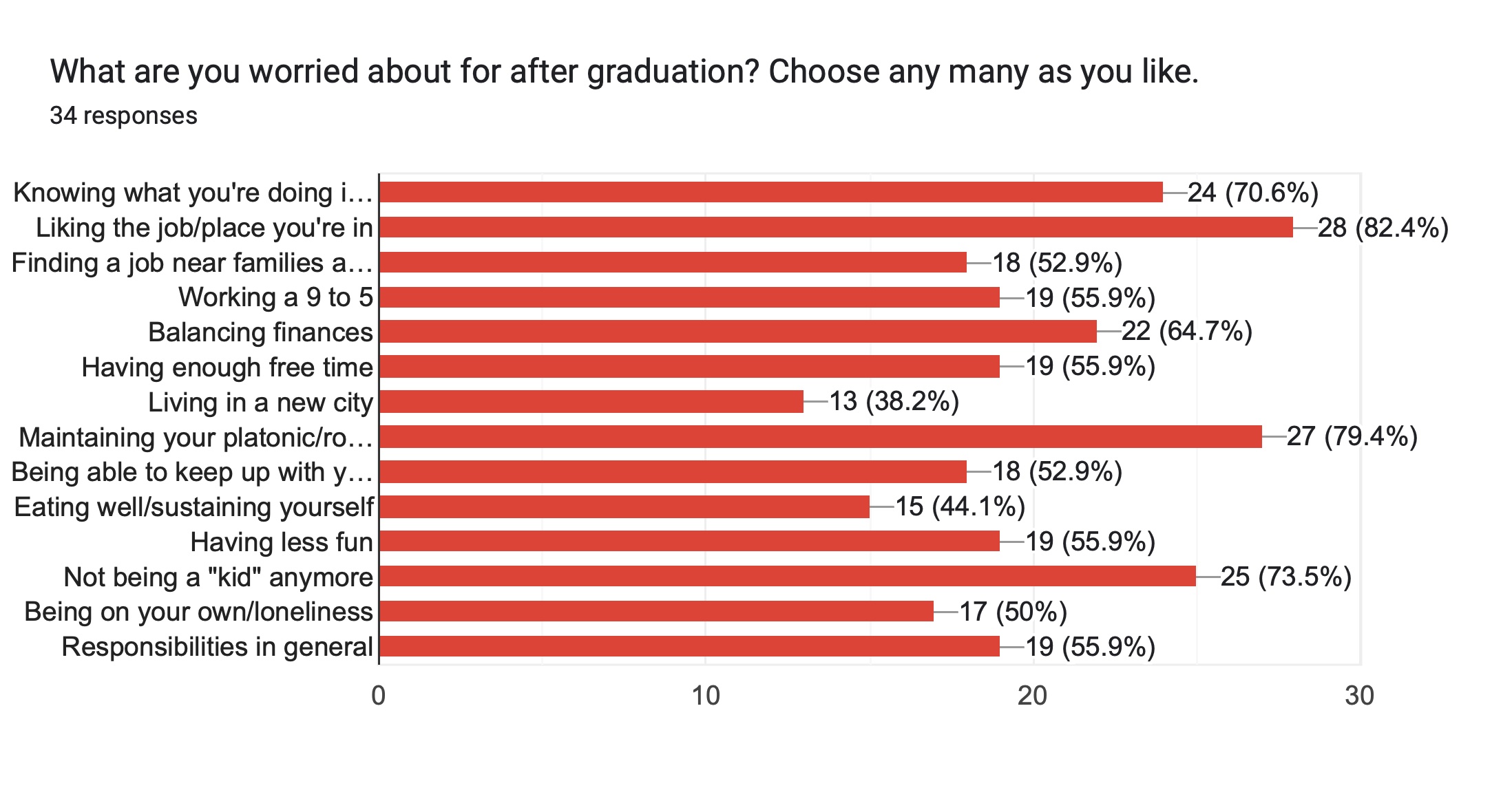The Unspoken Worries of College Seniors
The transition into adulthood and how to navigate it
By: Avery Goodman
When Irene Zachariadis learned that her college would not allow kids to live on campus for the Fall, a small part of her was relieved. She didn’t know if she was really ready to live on her own yet and valued the time she had with her family. But as the days went on, Zachariadis soon found herself longing for an escape from reality.
What is usually a time filled with making new friends and getting out of your comfort zone turned into conversations over computer screens in your childhood bedroom. Zachariadis felt extremely isolated and struggled with feelings of depression, but with a global pandemic going on outside, she was forced to sit with her sadness with no distractions from her mundane routine.
“I feel like I missed out on a pivotal experience that everyone gets. It was a completely isolating time.”
— Irene Zachariadis
Irene Zachariadis is now a senior about to graduate with a B.S in Business from the University of Delaware. However, she doesn’t feel ready to leave this era of her life she only really got a taste of.
For many college seniors in the class of 2024, Zachariadis’ story sounds familiar. A great deal of students started their college experience from home as a result of the Covid-19 pandemic. Now, they’re getting ready to transition into another phase of their lives. While life has slowly returned to pre-pandemic living, the repercussions of Covid still stand today. Most seniors, including myself, don’t feel ready to make their way into “the real world.”
We’ve been students for the majority of our lives. For as long as we can remember, our days were scheduled and our years were divided into semester-sized chunks. There was always some syllabi to follow and some grader to tell us where we stood. We’ve had multiple week long breaks throughout the year and summer vacations for multiple months. But in May, these luxuries will be a thing of the past for most of us.
It’s a scary time–starting jobs that may not pay enough to cover the costs of living, moving to completely new cities where social life isn't just down the street anymore, and getting used to having a strict 9 to 5 schedule or whatever your job’s equivalent is. We’re all going through it, but who is there to guide us through this big transition? What do we need to be prepared for? How do we find our space comfortably in this “real world?”
While this is an age-old transition, Senior Research Scientist at USC’S Marshall Center for Effective Organizations, Dr. Jennifer Deal, says our generation has the added curse of online comparison.
Credit: USC Marshall CEO

Dr. Jennifer Deal
“The core activities of moving from a university to a job aren’t any different. But when I was leaving school, I only really knew what my friends were doing. There wasn’t social media for me to see everybody humble brag about their awesomeness. I imagine that that would be incredibly stressful. So now an interesting question is, what part of the stress is the reality of moving to a new city, getting an apartment set up, meeting new people, figuring out your commute, and what part of it is how am I showing up to all of these people?”
I created this project to help my class of 2024, and classes that come after, find solace in the fact that they’re not alone in dealing with all the stress that comes with this process. You'll hear from multiple soon-to-be graduates speak on their anxieties for post-grad life, in addition to multiple experts on how to navigate this transition, including explainer videos from an accountant and a mental health expert.
Based on a survey I sent out to my fellow college seniors, over half said that it would benefit them to hear from other college seniors with their same worries. Out of a list of options, 82.4% said they are most worried about liking the job/place they are in after graduation, followed by 79.4% worried about maintaining their platonic/romantic relationships, and 73.5% worried about not being a “kid” anymore. There were many write-in responses revealing even more concerns–balancing finances, having enough free time, and just dealing with responsibilities in general. What I concluded was this–we’re worried. About everything. And we don’t really talk about it. I’m hoping this guide will be a resource for those who feel lost and anxious about life after professors and textbooks.You Are Not Alone.

Nora Lewis during her graduation photos; Credit: Nora Lewis
Nora
As a public policy major with an art history minor at the University of Michigan, Nora Lewis hopes to end up where her expertise thrives: Washington, D.C. But getting there is her main concern.
“Applying to jobs that I know a ton of other people are applying to feels a little bit like a shot in the dark. When you have to dedicate a lot of time to applications, sometimes I wonder if I could be using my time more wisely and focusing on positions I may have a better shot at. But I really am interested in being a political analyst, so it’s more of a logistical problem than anything else.”
Although the University of Michigan is a prestigious school with its Gerald R. Ford School of Public Policy having only a 5% acceptance rate, Lewis still worries about her after school plans, especially because many of her closest friends already have jobs lined up elsewhere. For a time that can be very overwhelming for people fresh out of college, having a support system can be pivotal.
Credit: Nora Lewis

Lewis and her roommates
“I’m definitely worried about not having some kind of support system after college. Besides the friendship aspect of it, it is nice to live with people you’re close with to help distress when you’re anxious. It’s pretty scary to think about not having those close connections, well, close anymore. Being able to maintain relationships with people far away is a big uncertainty that I know I’m going to have to deal with at the end of the year.”
While Lewis knows many of her peers are in the same boat, it doesn’t make it any easier for her in the transition.
"Those kinds of connections really do make such a difference in terms of the quality of life, but it’s hard because I feel like the impulse as a soon-to-be graduate is to follow where the job is. With that, you leave a lot of other things behind. I don’t know if it’s a valid reason to not take a job or pursue something, but it is still something I wonder about.”
University of Southern California 2023 alumnus Axel Bhandari is currently dealing with this same problem of loneliness. He wishes he knew how much structure he had in college and how different life would be without his friends constantly around.
Credit: Axel Bhandari

Bhandari's graduation
“You don’t realize how much having roommates (or 11) actually adds structure to your day, whether it be hanging out together or just cooking with them, you’re always doing something. Along with that, you have classes and social activities that you have to keep up with. Now, I get home on Fridays, and barring some exceptions, I have nothing set during the weekends besides going out Saturday night.”
Bhandari’s advice to upcoming college graduates is to figure out how you like to spend time on your own. While it’s a bit of a learning curve, he says it’s definitely a good feeling once you get the hang of it.
What has kept Nora Lewis going through this stressful time has been seeing the examples set from her siblings. As one of six, with four already out of college, she finds comfort in knowing that things have worked out for them.
“It’s been nice to have quite a few examples of how it is to navigate the transition. It certainly helps me be more realistic in terms of knowing that things are not always going to be super fun, but with my siblings, I’ve seen how they have settled into their life a couple years postgrad. It’s encouraging because I know it will work out. It's not necessarily the most linear path, but in general, it will work out.”

Charlie Hill at USC Commencement 2023; Credit: Charlie Hill
Charlie
Charlie Hill is a computer science major at the University of Southern California. As Covid hit his sophomore year of college, he found himself staying for an extra semester than the rest of his peers. After months of tirelessly searching, he finally got an offer with the Air Force base in Oklahoma City.
According to a 2023 survey conducted by staffing agency Insight Global, two-thirds of unemployed Gen Z job seekers report being burned out from looking for jobs. The survey also found that recently unemployed full-time workers report having applied to an average of 30 jobs but have only received an average of four callbacks or responses.
Credit: Charlie Hill

Hill and his sisters
While unemployment in the U.S has remained low and stable since 2021, many companies fear an incoming recession and have pulled back on hiring as a result. High profile corporations such as tech giants Google and Amazon announced giant layoffs in the beginning of this year, worrying many in the tech field like Hill. Although he’s grateful to have an offer, Hill knows all too well the tiresome struggles of recruitment.
“For those of us going into corporate fields, I feel like there's a lot more competition when looking for jobs. There's a sea of people to compete with. When our parents were looking for jobs, the sense that I've gained is that they would walk in, hand people their resumes and that would give them a really good shot at whatever job they were looking at. Whereas our generation applies online to 20 jobs a day and you might not hear back from any of them."
I wanted to see if this was accurate, so I interviewed my mom about her job hunting experience when she was a college senior. Turns out, our parents’ process of applying was definitely different than how ours is today, but at least for some, the stress and anxiety that comes with it affected them just the same.
Credit: Becky Goodman

My mom (left) at The Ohio State University
“I'd look at ads in the back of a newspaper and find a bunch of jobs I wanted to apply to. Then I would mail out my typed resume and cover letter and wait to hear back, but I didn’t hear anything from a lot of them. I really had to network and use my connections to get where I am today. I don’t think it matters which generation is applying, it all comes down to who you know.”
These 'who you know' connections are sometimes referred to as ‘weak ties.’ In a passage from The Defining Decade: Why your Twenties matter–and how to make the most of them now by clinical psychologist Dr. Meg Jay, she dives deep into the concept of weak ties. She cites a study from sociologist and Stanford Professor Mark Granovetter to explain this phenomenon. In his research, he found that “more than three-quarters of new jobs had come from leads of contacts who were seen only ‘occasionally’ or ‘rarely’” (pg. 21). According to Granovetter, some relationships are weaker than others and the strength of a tie increases with time and experience. Dr. Jay sums up Granovetter’s analysis pretty clearly– “...they’re not just figures in an already ingrown cluster, weak ties give us access to something fresh. New jobs, new information, new apartments, new opportunities, new ideas…like bridges you cannot see all the way across, there is no telling where conversations with them might lead” (pg. 22).

Photo Credit: Amazon
Turns out, there really is truth to “it’s who you know.” But many college seniors don’t know how to access that information. What Dr. Jay suggests is starting from your stronger ties and going from there. For example, think about all the people you know and their backgrounds. As Dr. Jay says, “In your twenties and beyond, it is the people you know the least well who may be positioned to do you the most good” (pg. 32).
Hill utilized this skill in his job search and saw great results. He has many hopes for the future, but his biggest wish is to be able to maintain a connection with his ‘strong ties.’
“I hope to be able to keep my relationships strong with the people I like being around and who care about me. This comes more easily in college and I really hope I can preserve it as I move on to the next stage of my life.”

Amber Patel during grad photos; Credit: Amber Patel
Amber
As a college senior who has had their job since August of 2023, Amber Patel was excited to start senior year and not have to think about speaking to any more recruiters. For her, the job search started sophomore year. Patel applied to her internship at PwC in 2022 for the following summer in 2023. That internship turned into a job offer and now she’ll be heading to the Big Apple after May.
However, she’s not exactly sure when yet. Patel is one of many whose start dates have been pushed back by their jobs. Three top consulting firms, Accenture, Bain and Deloitte have given stipends to hundreds of recent graduates after pushing their start dates months later. While Patel won’t find out until June when she really starts, she’s hoping to have a little more time with her family before moving all the way across the country.
Credit: Amber Patel

Patel and her family
“I go to school two hours from home. So it's easy for my family to come visit or for me to go down [to San Diego]. But now I'm going to be on the other side of the country. I know there will be times I can go home, but it's also so expensive compared to paying for a tank of gas. It is pretty sad. I realized that I've missed almost all of my brother’s childhood being in college, and now I'll be even farther.”
Moving away from family is a struggle that many college students like Patel face. According to BestColleges.com, only 14% of college students plan to move back to their hometown or to where their family lives once they finish college. Almost half (48%) say they want to experience a new place post-college with 40% saying they have a desire to live independently.
While Patel may not have had to deal with the stress of finding a job her senior year, she’s had to put a lot more emphasis on making time to see her family during breaks. 2023 University of Southern California graduate Lianna Treitler says that she didn’t consider the fact that there’s no built-in time off after college. She had to be much more deliberate about when she took-off work to see her family. However, she says that having her friends go through the same thing made it feel better to know she wasn’t alone.
Credit: Lianna Treitler

Treitler's graduation
“No matter how ‘together’ everyone seems to have it, you are not the only one who is anxious, uncertain, or feels lost or stuck. Everyone is going through the same thing and same major life changes so give yourself some grace!”
Patel knows that regardless of the distance, her family will always be a phone call away. She’s excited about her new chapter and knows that everything will be alright.
“It all works out eventually. It'll happen how it's supposed to happen. I did not know that this would be how I started my career, I had a totally different view for what my first job would be out of college and what life path I would be on. But life isn’t always what you expect and I'm looking forward to seeing what else it has in store for me.”

Irene Zachariadis during her graduation photos; Credit: Irene Zachariadis
Irene
When Zachariadis finally got to school, it wasn’t at all what she’d expect. The University of Delaware only let a handful of people onto campus in the Fall, so while some people did know each other already, most of her peers came to school for the first time in the Spring. But being forced to live in a dorm room by herself still made making friends for Zachariadis challenging.
Credit: Irene Zachariadis

Zachariadis at her sorority
“I was under the impression that people who were there were already friends and they wouldn't want to make more if they've already got a group. So I joined a sorority which is something that I never thought I would do. And even with that it was difficult because the sorority wasn’t having events. Now, being a senior looking at all the things that the new members get to do in their first semester…It's just very upsetting to realize everything that I missed out on and all the friendships that I could have been making through that, in addition to just being on campus in general.”
Over 1,300 colleges and universities cancelled in-person classes or moved to online learning in the Spring of 2020. By the fall, 44% of institutions were either fully or primarily online. A 2021 survey done by Bestcolleges.com reported that more than 9 out of 10 college students experienced negative mental health impacts due to Covid-19 related circumstances and almost half of respondents said that these mental health challenges directly affected their education. On top of the stress of finding friends, Zachariadis had to juggle college coursework from her dorm room. While online schooling was easier than she’d expect, the effects it had on her are still present today.
Credit: Irene Zachariadis

Zachariadis at her high school graduation
“Going from high school to college is a big transition in terms of schoolwork and the fact that online schooling and all of that stuff got thrown in the mix, it really messed me up. I was very well prepared by my high school to succeed in college and then I came here and both students and teachers were putting in less effort. It made it hard to keep up the work ethic I once had. And now, I mean, of course my classes are hard and I have difficult assignments, but the way I do my work is very different because a lot of the preparation that I had from high school got stifled with online learning.”
Zachariadis isn’t alone. According to a Frontiers in Psychology study, 33% of students reported feeling that their academic future was at significant risk due to the pandemic. The National Library of Medicine reported that students averaged a score of 7.6 out of 10 when asked how much their learning quality was affected. Not only college students were impacted by online learning either, an overwhelming majority of states saw significant declines in math and reading scores among fourth and eighth graders between 2019 and 2022.
All of these effects of the pandemic made Zachariadis feel like college went by way too fast. Now that she’s a senior, she doesn’t feel ready to graduate knowing all that she missed out on. Even when she goes back home, her feelings of being stuck there for what should've been a pivotal moment in her life comes rushing back.
With no job lined up yet, Zachariadis plans to move back in with her parents and move back into that room. She knows, because of the pandemic, that nothing is for certain or guaranteed. While she is still excited for what the future holds, she knows that when she does get a job, she should be prepared for unprecedented things to happen.
University of California Berkeley alumnus Allira Bellawala resonates with Zachariadis’ uncertainty. After graduating in the Spring of 2023, Bellawala tried to have it all planned out in advance. But like Zachariadis says, you can never really expect everything.
Credit: Allira Bellawala

Bellawala's graduation
“It’s definitely good to plan ahead, but once I actually moved to a new place and started a new life, I realized there were a lot of things I liked and didn’t like. But it’s only scary when you think of post-graduation life as the rest of your life. You have to think of it as baby steps. It honestly is similar to starting college—it’s terrifying and unfamiliar until it isn’t. Don’t think about the huge life changes and how things will be so different. Focus on the exciting parts and the natural way to continue your life. Graduating isn’t starting a new book, just a new chapter.”
Zachariadis has made an effort to savor every last moment of her current chapter in college. As scary as this transition is, life seems to turn out okay whatever your situation is.
"I've learned to take advantage of every opportunity because I never know where they might lead. Even though I'm nervous, I think I'm ready for this next stage."



